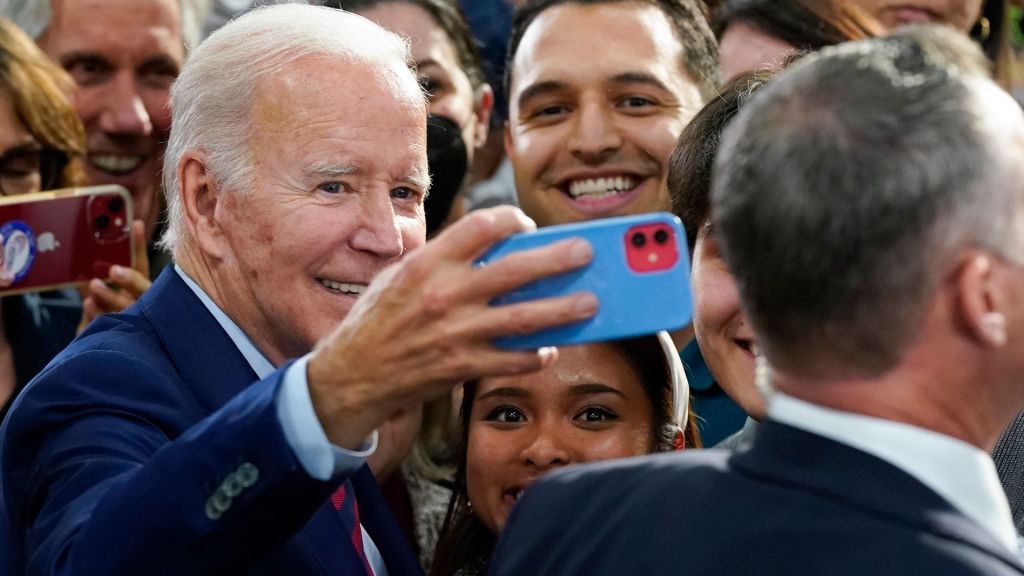
SIMONE DEL ROSARIO: YOU’VE LIKELY HEARD OF GREENWASHING. THE TERM WAS COINED IN THE 80S TO DESCRIBE COMPANIES THAT ARE MISLEADING OR STRAIGHT UP LYING ABOUT ENVIRONMENTAL ACHIEVEMENTS. BUT 2023 MAY BE THE YEAR OF GREEN *HUSHING, WHERE COMPANIES START STAYING QUIET ABOUT CLIMATE GOALS.
JASON JAY IS THE DIRECTOR OF THE SUSTAINABILITY INITIATIVE AT MIT SLOAN. HERE TO TALK WITH ME ABOUT WHY CORPORATIONS MIGHT BE HUSHING UP.
Jason, a lot of companies have climate goals, what do you think is the biggest driver of them holding that information a little closer to the vest now?
JASON JAY: Sure, I think it is partly about the political polarization that exists around climate and sustainability issues. Although there is a broad scientific consensus about the need for climate action, and a broad economic consensus among companies that there are profitable opportunities to reduce our footprint, we still live in a polarized world. And when we have moments like the Texas pension fund attacking Blackrock for doing ESG, investing, under the claim that it’s somehow anti fossil fuels, you know, I think we are in a moment where putting yourself in the public eye opens you up to various different kinds of scrutiny and criticism, and potentially being labeled as a company that is, you know, on the left or on the right, and therefore, you know, maybe gaining some market share, but losing a population of customers and other stakeholders that you might want to engage.
SIMONE DEL ROSARIO: Is there a way for companies to be setting clear sustainability goals and talking about it in an apolitical way, especially here in the United States?
JASON JAY: I believe so. I think that we and I also think that companies need to have the courage to take a stand for what they know, right? We’ve just had this incredible piece of research come out of Harvard that’s in the journal Science, about how much Exxon knew about climate change going back decades, and yet they were lying to the public about their views and trying to seed doubt, and so on, to stave off climate policy. And I think that in the current environment, we are recognizing that scientists, you know, have come to a consensus about the action we need to take, and companies need to have the courage to stand with science. It requires the ability to, you know, whether some of the storms that might come up, which I think are ultimately fleeting, as we as a country start to understand how much our prosperity depends on moving toward a low carbon economy and, and how much our whole global prosperity depends on us tackling and solving the climate challenge.
SIMONE DEL ROSARIO: We started this, talking a little bit about greenwashing. And you’re, you’re saying that maybe the Texas actions and other actions of Republican-led states could have a chilling effect. But when we think about greenwashing, I mean, there’s been a lot of virtue signaling in the corporate world as well. Is part of this about companies greenwashing and being accused of something along those lines.
JASON JAY: Absolutely. Thanks for posing that, that’s a second piece of this. And this is the part that actually predates even the political polarization. So for example, if you look at Nike in the early 2000s, they were doing a lot on sustainability. They were doing a lot of environmentally-minded redesign of their shoes. They were eliminating toxic materials, they were eliminating sulfur hexafluoride gas from the bladder of the air, Nike Air shoes, to reduce their greenhouse gas footprint. And they weren’t really talking very publicly about those things. If you were actively searching for that information, you could find it in a corporate sustainability report. But by and large, the vast majority of consumers and customers of Nike, you know, weren’t aware of those sustainability efforts. And that’s partly because you don’t want to start waving the banner around saying, I’m a green company, when you’re still in process of working toward that greenness. And so I think there’s always, even predating some of the political polarization. There’s still this question of, you know, how much do you need to have accomplished along that journey before you start talking about it publicly? And I think there is a good legitimate question about that. There also is a tendency in the way that we talk about and communicate about sustainability goals and achievements, that can be more or less inviting of those types of critiques. So, you know, if we say, for example, like I have created the green product, or the greenest product, then I’m amenable to all kinds of criticism about ways in which I might be, you know, using high energy processes or toxicity processes somewhere in my value chain. Whereas if I say, this option is greener than the alternatives, and we are working to make it better, there are sort of humbler ways to make those claims.
SIMONE DEL ROSARIO: There was a south pole report that came out late last year that said nearly a quarter of the Global Climate Leaders surveyed were not planning on publicizing their achievements and milestones in the climate space beyond the bare minimum and South Pole stance was that this was bad that these climate leaders were not talking about it. But does it matter if a company talks about it or not?
JASON JAY: If you’re one of the first companies to do something, to set a goal to do some decarbonisation work to make progress, it’s really important that you talk about it, because that potentially brings in others who want to imitate you, and it starts to build momentum. Once that momentum has been built, and now we’re kind of saturating in the market, how you know how many companies have taken these action, the incremental value of my sharing what I’m doing isn’t as significant in terms of crowding others in and it might have the appearance of being Johnny come lately and being a laggard in the process. Now that we’re quite far along in the process of major emitters, setting significant targets, and decarbonizing. I’m not surprised that we’re starting to have a conversation about greenhushing, because if you haven’t come to the party yet, you know, suddenly waving a banner saying, Hey, we’re here now, you know, may not get you the benefit that you want.
SIMONE DEL ROSARIO: Do you think there’s a chance that there’s too much virtue signaling in the space? I think about all of these people coming out with these certain climate goals. But in addition, how much impact are they really having? There was just a guardian report that came out this past week that showed that companies were purchasing what amounted to be phantom carbon credits. So how true are these actions really in the space?
JASON JAY: It’s a fantastic question, I think we need to be very cautious about claims toward carbon neutral, or net zero, because many times those benchmarks are achieved through the purchasing of carbon offsets credits and other mechanisms and carbon markets. And we know that there are major challenges and major flaws in the landscape of the carbon markets. There are efforts to make it more rigorous to create certification schemes to create measurement methodologies, to assure that, in fact, when people say they’re planting trees, they’re planting trees. But even more importantly, that those trees are lasting, that they’re absorbing as much carbon as we thought they would. That they’re not being lost in forest fires. And so there’s a lot of challenges. In fact, this year at the MIT sustainability summit will be entirely focused on carbon markets on April 28, because of the challenges in that space. So I do think we have to be cautious and careful about those types of claims. And many of them are in a sense, like you said, it’s kind of virtue signaling.
SIMONE DEL ROSARIO: Jason Jay, from MIT Sloan School of Management, and thank you so much for your time today, Jason.
JASON JAY: Absolutely. Thanks for having me.






